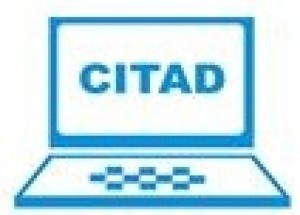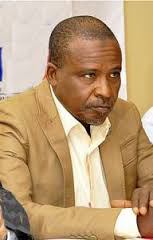
Mallam YZ Y’au
The assumption here is that the reader must have read the first part of this report on how the ‘Civil Society Consultative Forum on Internet Code of Practice for Nigeria’ went on June 8th, 2017 in Abuja and this second part is simply rolling on. In what ways are women discriminated against in terms of utilisation of the internet? This was actually the first question posed to Prof Dada and it was by a young woman journalist. It is only coming at this stage of the report, preceded by the themes of rural internet and the internet-security nexus because Prof Dada pushed the question to CITAD Executive Director whose response came way down. In doing so, it is either that Prof Dada did not want to entangle himself in wider gender politics or did so out of awareness that the CITAD boss was among the big masquerades beating the ideological drums to which the defunct Women in Nigeria, (WIN) was gyrating until a strange consciousness seized the organization mid 1990s, problematising male membership. Whichever of the two plausible reasons apply, Y’au told the audience when he took the floor that a study by CITAD had shown less women online when compared to men and that there are many reasons for that.
The most obvious explanation, according to him, is cultural. That is the cultural imagination of the woman as a strange presence in the public sphere. He illustrated this reality with the example of women who have been divorced because they have been seen on facebook.
Two, every technology comes with its skills requirement. For the internet, the skills requirement is the gamut of digital literacy but which men have more chances of acquiring than women because of the spatial division of labour that underline gender inequality. Three, men are also better placed in terms of affordability which is a function of life chances broadly. He recalls the slogan about poverty having a woman face because more women are poor. Fourth explanation has to do with how the internet is used – men are not subjected to sexual harassment online as much as women are, for example, by blackmailers loading a woman’s picture onto the facebook or the net. To avoid such situations especially in our kind of society, some women avoid the internet entirely. Finally, women are over burdened. They are caregivers to children and husband, many of them combine that with working life, they handle domestic chores and manage the kitchen which is at the heart of the conventional family. The combined effect of these leave them with little or no time left to engage with technology, especially the internet.
His conclusion is that women are thus a special class of the marginalised in relation to accessing the internet. This is not only in Nigeria but Africa wide and global because, except the Scandinavian countries – Sweden, Norway and Denmark, very few other countries have overcome the women question. As such, dealing with Internet Code of Practice in Nigeria requires ensuring digital literacy for women and guaranteeing a privacy regime for women.
 Mrs Mary Iduma, a former NCC Director and now the Chairperson of the Nigeria as well as West African Internet Governance Forum took her turn to present the second background paper. Hers was on the Internet Governance Forum as a layer in the governance ensemble around the internet. It is a policy dialogue platform for stakeholders, she said, meaning that they do not deal with treaties. Instead of dabbling into hard or soft legalisation, they jaw-jaw around thematic areas of trade and every other economic activities that define the internet economy; the management of critical internet resources; inclusiveness – dealing with women, disabled, the aged and new language such as digital natives, digital migrants, etc; diversity; enhancing multi-stakeholder communities – from academics to business to civil society; cyber – security; internet eco-system and, lastly, emerging issues such as big data.
Mrs Mary Iduma, a former NCC Director and now the Chairperson of the Nigeria as well as West African Internet Governance Forum took her turn to present the second background paper. Hers was on the Internet Governance Forum as a layer in the governance ensemble around the internet. It is a policy dialogue platform for stakeholders, she said, meaning that they do not deal with treaties. Instead of dabbling into hard or soft legalisation, they jaw-jaw around thematic areas of trade and every other economic activities that define the internet economy; the management of critical internet resources; inclusiveness – dealing with women, disabled, the aged and new language such as digital natives, digital migrants, etc; diversity; enhancing multi-stakeholder communities – from academics to business to civil society; cyber – security; internet eco-system and, lastly, emerging issues such as big data.
What may be regarded as the second segment of her presentation was where she applied this broad framework to Nigeria, generating questions and controversies on issues as varied as what conception of human rights should be acceptable to Nigeria, is Nigeria for Net neutrality; have policy makers accepted Zero rating and how can Africa deal with it? For her, Africa would not accept zero rating because not much is being uploaded from Africa as much as the so much downloading going on. So, accepting zero rating would squeeze Africa’s traffic.
What of net neutrality? Is Nigeria for or against it? Net neutrality means no discrimination against anything on the net. Theoretically, the internet is supposed to be a wonderland where you can fetch or deposit whatever, including pornography and obscenity. How should Nigeria deal with that? What about human rights in relation to the internet?

How does Africa fare in the great power politics around the internet?
Sensing the elastic nature of these category of questions, Yakubu Aliyu, the Chairperson intervened to remind the audience of the topic of a recent engagement: “Rethinking African Culture in the Age of Internetâ€. For him, if Nigeria/Africa and nobody actually can control the internet, then it is up to us to come from the other side in terms of how much space Africa can occupy. That way, the question is reduced to something more manageable.
It turned out to be a discerning intervention in view of the observable dichotomy gradually building up in the room between the communalists and the liberal divide as always in the politics of human rights in Africa. What was left was to summaries the day.
In doing that, CITAD boss said it had been a great day because a number of crucial ideas had come to the fore, including the unanticipated slogan “.ng is our (Nigeria) currency in the cyberspaceâ€, how good it is to use it, especially that it is cheaper than others. A summary of what emerged as the key issues of concern would be produced and circulated, including to stakeholders who did not attend the session, he said. It is the clean document from that phase that would make its way to the NCC as the civil society’s shopping list as far as internet code of practice in Nigeria is concerned.





 Mrs Mary Iduma, a former NCC Director and now the Chairperson of the Nigeria as well as West African Internet Governance Forum took her turn to present the second background paper. Hers was on the Internet Governance Forum as a layer in the governance ensemble around the internet. It is a policy dialogue platform for stakeholders, she said, meaning that they do not deal with treaties. Instead of dabbling into hard or soft legalisation, they jaw-jaw around thematic areas of trade and every other economic activities that define the internet economy; the management of critical internet resources; inclusiveness – dealing with women, disabled, the aged and new language such as digital natives, digital migrants, etc; diversity; enhancing multi-stakeholder communities – from academics to business to civil society; cyber – security; internet eco-system and, lastly, emerging issues such as big data.
Mrs Mary Iduma, a former NCC Director and now the Chairperson of the Nigeria as well as West African Internet Governance Forum took her turn to present the second background paper. Hers was on the Internet Governance Forum as a layer in the governance ensemble around the internet. It is a policy dialogue platform for stakeholders, she said, meaning that they do not deal with treaties. Instead of dabbling into hard or soft legalisation, they jaw-jaw around thematic areas of trade and every other economic activities that define the internet economy; the management of critical internet resources; inclusiveness – dealing with women, disabled, the aged and new language such as digital natives, digital migrants, etc; diversity; enhancing multi-stakeholder communities – from academics to business to civil society; cyber – security; internet eco-system and, lastly, emerging issues such as big data.